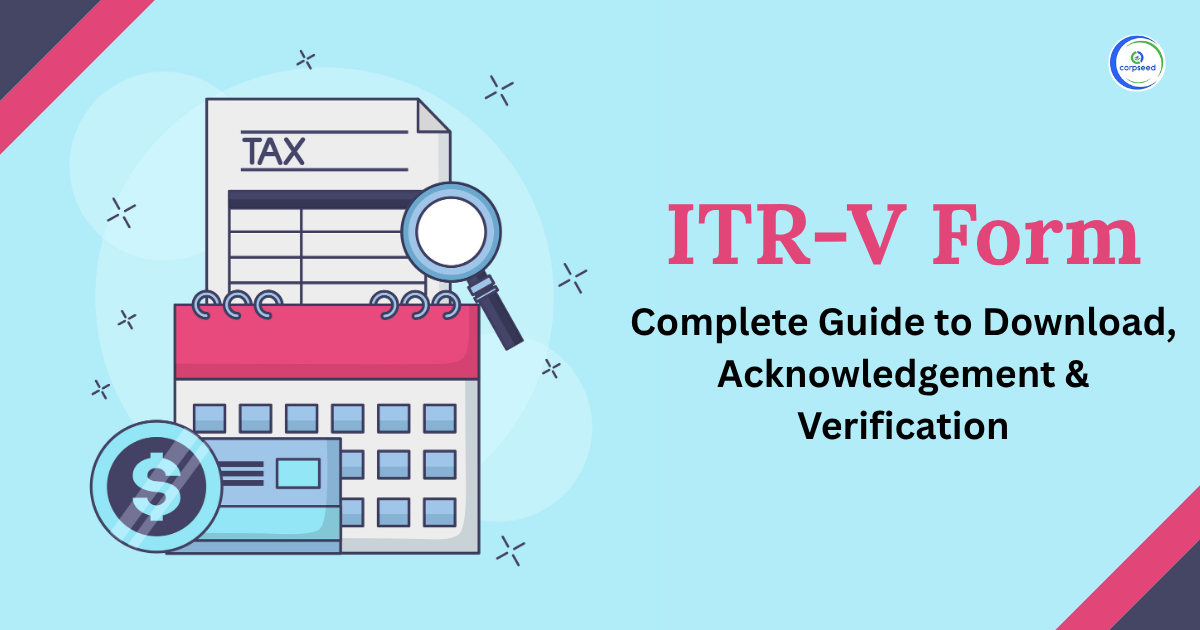In today's competitive business landscape, staying ahead is essential for success. One powerful tool that can help businesses achieve their goals is the Audit. Often overlooked or misunderstood, audits have the potential to unlock hidden potential and optimize operations in ways that can transform a company's trajectory.
Table of Contents
--------------Blog Contact Form-------------
From financial audits that ensure compliance and identify cost-saving opportunities to marketing audits that analyse customer engagement and improve brand positioning, audits comprehensively assess a company's strengths and weaknesses.
This article will explore the power of audits and how they can be leveraged to optimize your business for success. Whether you're a small start-up or a well-established corporation, understanding the different types of audits and implementing the insights gained can be the key to unlocking untapped potential and driving growth. Get ready to discover the transformative power of audits and take your business to new heights.
What is an Audit?
An audit is an independent examination of an organization's financial statements, operations, and performance. It is conducted by an auditor responsible for evaluating the accuracy and reliability of financial information and ensuring compliance with accounting principles and regulations.
It consists of two types of audits; internal and external. The company's internal auditors carry out internal audits, which are focused on assessing the efficacy of internal controls and risk management procedures. On the other hand, third-party auditors carry out external audits and are mandated by law or regulation.
Thus, the main goal of an audit is to reassure interested parties that the financial statements accurately portray the organization's financial situation and performance. For instance, it even has different types of audits.
Types of Business Audits
Businesses conduct various types of audits to ensure and maintain order. Let us have a look at its types, which are as follows-
- Internal Audit
- External Audit
- IRS Tax Audit
- Financial Audit
- Operational Audit
- Information System Audit
- Payroll Audit
- Statutory Audit
- Statutory Audit
- Employee Benefits Plan
Internal Audit
Internal Audit refers to inspecting and evaluating the company's financial goals to determine whether the organization is functioning per the stated rules. An independent and objective function assures management and stakeholders that the company's operations are effective, efficient, and compliant with laws and regulations.
As the icing on the cake, it is because of the following reasons why internal Audit takes place-
- Identifying possible risks:- Internal Audit takes place to identify the potential risks and loopholes associated with the company's operations or financial operating. Just like it is said, the early bird gets the worm; similarly, auditors should detect these issues early by recommending fixing them.
- Ensuring compliance:- In internal Audit, complying with the rules and regulations of the firm is extremely vital to any business. Such an audit keeps a check and allows them to foresee financial or legal penalties.
- Improves Efficiency:- Internal Audit is one of the favourable ways that mirror efficiency and gauge the success of any firm's operations. Here, the internal auditor manages to have a sneak peek into prevailing procedures to hint at the areas that require improvements and can streamline the functioning while reducing costs.
External Audit
As a businessman, you might have heard of this term but would have needed to realize its depth. As the name suggests, an external audit is one of the ways by which a third-party or external auditor investigates a company's internal controls and financial statements. The Indian Revenue Service (IRS), independent certified public accounting (CPA) firms, accountants, and tax authorities are a few examples of these third parties.
To simplify, an external audit assures stakeholders that the firm's financial records are reliable and effective. To understand it better, the following reasons why external Audit takes place-
- Financial transparency:- Financial transparency lies at the heart of the external Audit. It allows for improvement when paying attention to the financial statements. Such an audit represents that your firm is concerned about financial transparency and would not shy away when re-checked or spoken about. Such a thing build trust with investors, customers and stakeholders.
- Detects weaknesses:- External Audit is like an inspection, with third-eye monitoring your activities. Isnt'that how it is felt? I am sure you can resonate with this. As your third eye, it identifies the possible weaknesses associated with the internal controls and suggestions to improve them. No wonder your company can even become the victim of different types of fraud, which an auditor might highlight.
- Compliance with laws:- It is acknowledged that an external auditor can greatly help you with the financial statements to ensure that you conform to the standards of accounting & other procedures.
IRS Tax Audit
The IRS Tax Audit is like an examination conducted on your tax return by the agent to confirm if your firm has reported the information regarding the tax returns accurately and effectively. It verifies whether the company has rightly stated the proposed tax liabilities. The story does not end here; it consists of other factors you must consider before you prepare yourself for the IRS tax audit. Let us walk you through –
- Requesting additional information:- You may expect to receive a notice from the IRS informing you of the Audit and requesting additional information or documentation.
- Report with Answers:- You might be asked to meet with an IRS agent to discuss your return and answer any questions they may have.
- Provide documentation:- Provide documentation to support the information on your return, such as receipts, bank statements, and invoices.
Financial Audit
Just like the tax audit, in a financial audit, the auditors peek through your company's financial status and check its credible nature. It is conducted by the Certified public accountant (CPA) to acknowledge if the information by you was legitimate or not. They mainly conduct and verify the records, taxes, assets, income and other such investments.
Besides, several things explain the importance of the financial Audit; let us have a look-
- Spots financial irregularities:- Financial Audit can help you spot errors or irregularities in the financial statements. No wonder it can protect your business from losses or any legal action.
- Improves financial management:- A financial audit is a viable way to peek through any firm's business performance and make informed decisions.
Operational Audit
An operational audit is like an internal audit that provides a comprehensive view of the internal processes & procedures. It identifies the inefficiencies associated with a company's functioning while improving on them. It is conducted by a Certified public accountant (CPA) or certified managed accountant (CMA).
So, why does an operational audit matter?
Here are a few key reasons:
- Manage Risks:- Operational audit is a type of audit management, where businesses face challenges, whether they are related to financial, legal or operational issues. But, with the Audit, you can identify and amend strategies to mitigate these risks.
- Spots Areas for improvement:- An operational audit is an appropriate strategy where you streamline processes, increase efficiency & cut down unnecessary costs. As a result, it plays an essential role in measuring the company's success.
Information System Audit
As businesses rely on technology, the need to manage the systems and information system audit becomes even more crucial.
The Information system audit allows businesses to maintain the integrity and security of their data. It scans the potential risks, such as data breaches, compromises on confidentiality, and unauthorized access, while solving them. In addition, with this Audit, businesses can spot these loopholes and take corrective measures to avoid cyber-attacks hijacking the data. For instance, they can recommend technologies ensuring data security.
With this, it even has other factors that explain the importance of an audit. Let us see-
- Detects data vulnerabilities:- The information system audit monitors the IT infrastructure and detects the data vulnerabilities earlier than expected to avoid failures. Just like it is said, better late than never.
- Assurance to stakeholders:- This form of Audit assures the stakeholders that the system is up to the mark and complying with the stated goals and objectives.
Payroll Audit
Yes, a payroll audit exists, serving as a WatchGuard in looking after a company's critical aspects or operations. It provides a comprehensive view of validating whether the payments are complete and accurate under the laws and regulations. The Audit is a detailed examination of payroll taxes, employee data, and other processes. Let us look at why payroll audit is essential-
- Accuracy:- A payroll audit can cause a great nuisance if not corrected at the right time. As a result, it is equally challenging & time-consuming. But, with the Audit, it allows you to spot types of errors & rectify them. If you paid the employee accurately and on time, it would eye on you.
- Identifying fraud:- Payroll frauds are one of the main concerns for every business type, as it pinpoints frauds and risks that might occur and ways to mitigate them. These audits trace any involvement or fraudulent activity that might have occurred and ways to avoid it in future.
Statutory Audit
The statutory Audit is an independent inspection of a firm's financial statements. It is a legal requirement that companies must fulfil to ensure that their financial records are accurate and comply with the relevant laws and regulations. In addition, the Audit ensures that they have maintained the proper records and financial statements to prove a company's (financial) status. Besides, there might be several reasons why statutory audits seem important and are as follows-
- Checking financial reliability:- The auditor here glances through the financial statements and claims them to be accurate and reliable based on the provided records. It is crucial for investors and creditors who depend upon financial records to make several decisions. If they provide the right data, they might make better decisions leading to success. Therefore, financial reliability is a must-have.
- Financial management:- The statutory Audit allows the company to validate the company's accounting records & check in the cases of any financial discrepancies. This can help prevent fraud, such that a company's assets are protected.
Forensic Audit
The forensic Audit comprises a part of the technical Audit, which involves investigative procedures to understand the financial transaction & data. Like any other audit, it helps businesses deal with and detect fraudulent activities, financial crimes or embezzlement. Not just this, the following is how it may help you-
- Builds trust & credibility:- Being a specialized accounting field, it might help you build trust & confidence with the stakeholders. Ensuring transparency and a commitment to accountability can help you serve as a reputable business and enhance the relationships with the partners, investors and customers.
- Results:- It is even stated that the results born from these types of audit reports are used in legal proceedings or raise conflicts between businesses & stakeholders.
Employee Benefits Plan
An employee benefit plan talks to the financial statements of the company's benefit plan for the employees. Such an audit carries the potential to hint at the inefficiencies, operations and measures regarding how well this plan complies with the mentioned rules.
Conclusion
In conclusion, an audit is a process that helps organizations maintain transparency and accountability. It assures stakeholders that the financial statements are accurate and reliable and the organization is compliant with accounting principles and regulations. It allows you to pay close attention to the types of audit opinions to maintain financial integrity and credibility.
This portion of the site is for informational purposes only. The content is not legal advice. The statements and opinions are the expression of author, not corpseed, and have not been evaluated by corpseed for accuracy, completeness, or changes in the law.
BOOK A FREE CONSULTATION
Get help from an experienced legal adviser. Schedule your consultation at a time that works for you and it's absolutely FREE.









